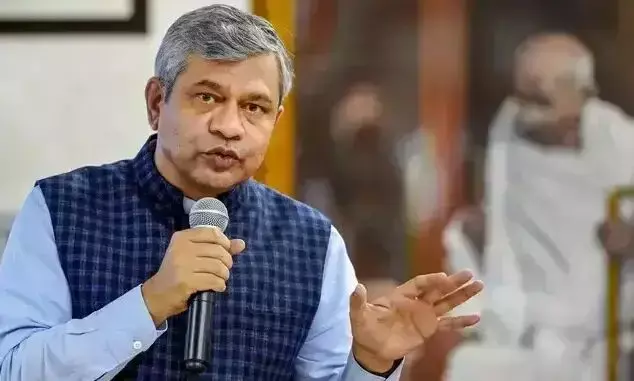Railways adopts automated rainfall monitoring system for bullet train
This system will provide real-time data on the rainfall using rain gauges, equipped with advanced instrumentation system
By Newsmeter Network
New Delhi: An automated rainfall monitoring system has been adopted to ensure the safe operations of bullet train service, Railway Minister Ashwini Vaishnaw said on Friday.
"To ensure the safe operations of #BulletTrain services, an automated Rainfall Monitoring System has been adopted. This system will provide real-time data on the rainfall using rain gauges, equipped with advanced instrumentation system," Vaishnaw posted on X.
To ensure the safe operations of #BulletTrain services, an automated Rainfall Monitoring System has been adopted. This system will provide real time data on the rainfall using rain gauges, equipped with advanced instrumentation system. pic.twitter.com/I5j73o7Smc
— Ashwini Vaishnaw (@AshwiniVaishnaw) June 14, 2024
According to the National High Speed Rail Corporation Limited (NHSRCL), which is constructing the bullet train project corridor, a track maintenance centre will monitor the data generated by a rain gauge installed near the track.
"This data is then shared with the train traffic controller to advise the implementation of necessary procedures for train speed restrictions or relaxation," an NHSRCL official said.
He added, "As the train will run at 320 km speed, every minute precaution is being taken to ensure its safety."
The Railways Ministry has officially announced the completion of the first phase, a 50-km long stretch between Surat and Bilimora, by August 2026.
According to the NHSRCL, the bullet train will run at its maximum speed of 320 km to cover the 508 km distance in two hours and 58 minutes which includes its stoppage time at all 10 stations.
It will start from Mumbai and terminate at Sabarmati after covering 10 stations, namely Thane, Virar, Boisar, Vapi, Bilimora, Surat, Bharuch, Vadodara, Anand and Ahmedabad.
Out of 508 km, 352 km falls in Gujarat and Dadar & Nagar Haveli and the remaining 156 km is in Maharashtra. There are a total of 12 stations out of which eight are in Gujarat and four in Maharashtra.
Inputs from PTI